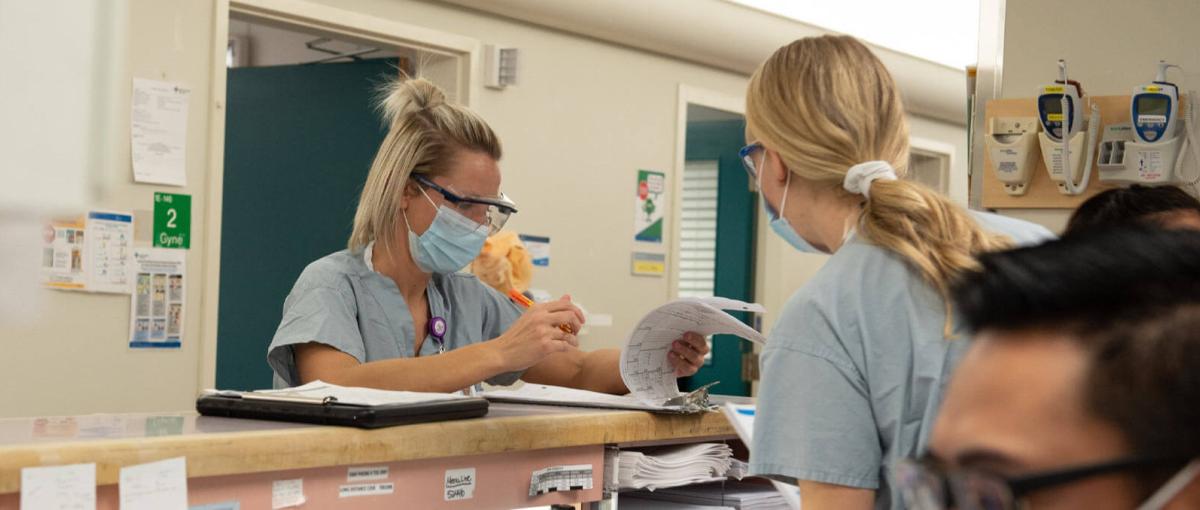Coping with stress during COVID-19
Tips for physicians and other front-line healthcare workers

May 5, 2020
By Marguerite Watson, Senior Communications Advisor, Covenant Health
Physicians and other front-line healthcare workers are used to dealing with stressful situations. But the stress of COVID-19 is new to everyone.
Physicians are showing signs of stress in different, individual ways, says Dr. Jennine Wismark, associate chief medical officer, physician wellness and development for Covenant Health. While some are more anxious and worried, others may be withdrawing from usual interactions like keeping in touch with colleagues.
Jennine says the anxiety she is seeing is about basic, practical things. Physicians are worried about not having enough staff, running out of the equipment and tools they need and their colleagues getting sick.
“I think right now the hardest part of this is that it feels like we’re waiting, that the worst is yet to come. We don’t know what’s happening, and we don’t know when it’s going to happen, and that just creates a lot of anxiety.”
So how can physicians and other front-line healthcare workers cope with stress as the pandemic continues? Jennine offers some practical tips and resources.
Determine the support you need
Support means something different to everyone, says Jennine. Before taking action, sit down and consider what support looks like for you. For some people, it might be practical, such as someone who can provide child care or meals for their family. For others, it might be psychological, such as someone to reach out to.
“The ways to cope are as individual as each of us, but what’s really important is that we take enough space and time to reflect on what we need,” Jennine says.
Use informal peer supports
“Informal peer-to-peer support is incredibly important right now,” says Jennine. She recommends buddying up with someone or identifying a group of people to virtually check in with once a week. Your buddy or group could be inside the healthcare system or outside, such as a neighbour or friend who may be isolated. For example, a friend of Jennine’s is enjoying virtual games nights with her daughters in Calgary and New York.
Jennine is getting informal peer support by reaching out to friends and colleagues through texts and phone calls. She also arranges virtual lunches and coffee dates so she can visit with people.
Shift your focus
Focusing on other concerns and activities is another way to cope with the stress, Jennine says. For some, that could mean finding different opportunities to help others. One of Jennine’s colleagues is making face masks. And another physician, who is a psychiatrist, is providing support to her peers through a Zoom Room.
Still others are finding relief from “the COVID-19 headspace” by taking webinars on topics such as how to provide good virtual care, spending time outdoors or exercising.
“People are being creative in thinking about ways to cope,” says Jennine.
Take advantage of formal peer supports
Formal peer supports are helpful for coping any time, but they may become increasingly more important as the pandemic starts to wind down, says Jennine.
“After we’ve pushed through this, we may be grieving and have a bit of a post-traumatic stress response because of what has happened.”
Help is always available for physicians and other front-line healthcare workers through employee benefit programs. Jennine also suggests looking into the many wellness resources posted online. The Canadian Mental Health Association and the Mental Health Commission of Canada, for example, both offer resources for mental health and wellness during COVID-19.